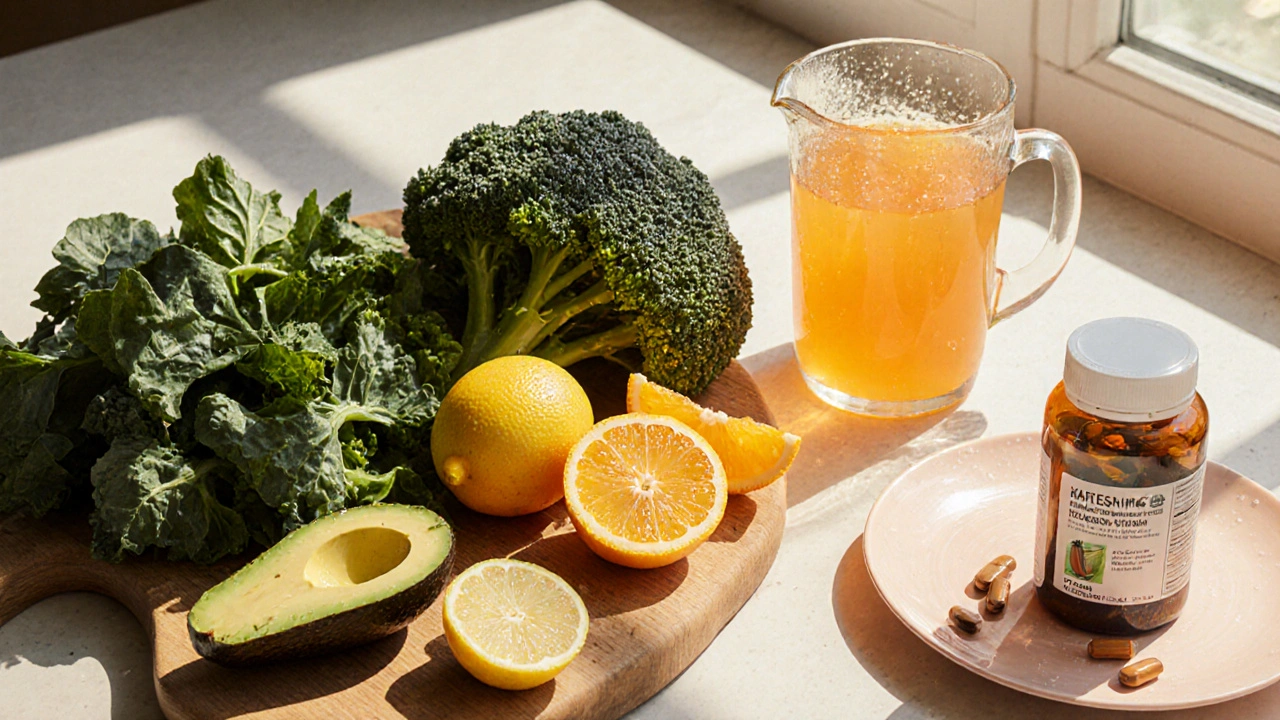Vitamin B9 (Folic Acid) – Essential Nutrient Overview
When talking about Vitamin B9, a water‑soluble B‑vitamin crucial for cell growth and metabolism. Also known as folic acid, it helps your body make DNA, support red blood cell formation, and keep the nervous system humming.
People often hear that vitamin B9 is a must‑have during Pregnancy, the period when a woman carries a developing fetus. The reason? A growing baby needs plenty of folate for neural tube closure, which prevents serious birth defects. That’s why health agencies push for 400‑800 µg daily for women of child‑bearing age. Missing the mark can raise risks of spina bifida and other neural tube issues.
Why Vitamin B9 Matters for Your Heart
Another big player is Cardiovascular health, the condition of the heart and blood vessels. Vitamin B9 helps lower homocysteine, an amino acid that, at high levels, can damage arteries and increase clot risk. Studies show that adequate folate intake can modestly reduce heart attack and stroke chances, especially in people with elevated homocysteine. So, whether you’re managing cholesterol or just want a healthier ticker, folate lands on the priority list.
Beyond pregnancy and heart support, vitamin B9 plays a starring role in DNA synthesis and repair. Every time your body creates new cells—whether skin, hair, or gut lining—it needs folate to copy genetic material accurately. This makes the vitamin vital for wound healing, tissue regeneration, and even mental function. Low folate levels have been linked to mood disorders and cognitive decline, hinting that a steady intake might keep your brain sharper.
Finding the right source is easier than you think. Leafy greens like spinach, kale and romaine lettuce are folate powerhouses. Beans, lentils, and fortified grains also pack a punch. If you struggle to hit daily goals through food alone, a supplement can fill the gap. Look for products labeled "folic acid" or "folate" with 400 µg to 800 µg per serving. For those with certain genetic variants (like MTHFR), methyl‑folate forms are often recommended because they’re already in the active state the body uses.
Beware of over‑doing it, though. Extremely high doses (above 1 mg daily) can mask vitamin B12 deficiency, leading to nerve damage that’s harder to reverse. Most adults stay safe with the recommended range, but if you’re considering mega‑doses for a specific condition, chat with a healthcare professional first.
The collection of articles below dives deep into these topics. You’ll find practical guides on buying affordable generic meds online, side‑by‑side antibiotic comparisons, and lifestyle tips for gut health and skin aging. Together, they give a well‑rounded picture of how vitamin B9 fits into broader health decisions, from choosing supplements to managing chronic conditions. Keep reading to see how the science translates into everyday actions you can take right now.

Folate Deficiency Myths Busted: Real Facts About Vitamin B9 and Health
Discover the truth behind folate deficiency myths, learn how to spot real symptoms, and get practical tips for diet and supplementation to stay healthy.
Categories
- Medications (70)
- Health and Medicine (61)
- Health and Wellness (36)
- Online Pharmacy Guides (16)
- Nutrition and Supplements (9)
- Parenting and Family (3)
- Environment and Conservation (2)
- healthcare (2)
- prescription savings (1)



